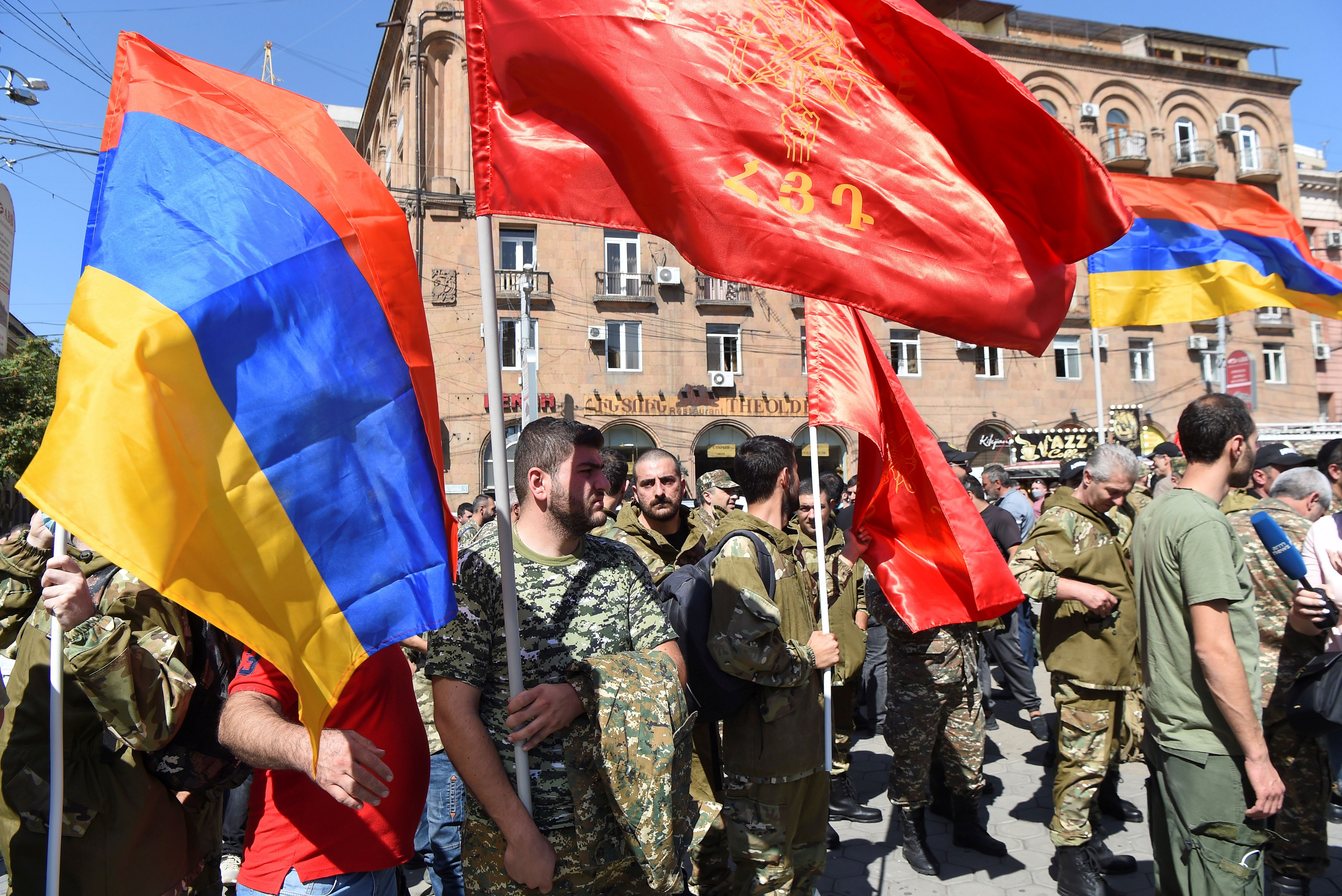News
September 30, 2020
No peace talks over Nagorno-Karabakh: Armenia and Azerbaijan are resisting pressure from Russia and the United Nations to stop fighting and talk out their dispute over Nagorno-Karabakh. Since major clashes erupted over the weekend, killing scores on both sides, the two countries are inching closer to a wider war that could potentially draw in not only Russia — which is treaty-bound to defend Armenia — but also a newly assertive Turkey, which backs Azerbaijan. Vladimir Putin has offered to mediate, but so far has no takers. Meanwhile, Armenia says Turkey has sent Syrian mercenaries to Nagorno-Karabakh and shot down an Armenian fighter jet. As if that weren't enough, the latest outside player to weigh in on the conflict is France, whose support for Armenia has put Paris at odds with NATO ally Turkey. We are watching to see if more countries — for instance the US — will get involved, and if this resurgent conflict becomes an even uglier proxy war.
India exonerates BJP leaders over sectarian violence: An Indian court on Wednesday acquitted 32 people — including the former deputy prime minister and two leaders of the ruling BJP party — over their alleged role in the 1992 demolition of a 16th-century mosque in Ayodhya that sparked a wave of sectarian violence. Seventeen of those exonerated are now dead, among them Atal Behari Vajpayee, the BJP prime minister at the time. The ruling is great news for Hindu nationalist supporters of PM Narendra Modi, who just weeks ago played to his base by setting the first stone of a new Hindu temple that is being built over the razed remains of the mosque. The site has long been disputed by Hindus and Muslims, but a controversial Supreme Court verdict last fall allowed construction of the temple to proceed. On the other hand, the acquittals are seen as a blow to India's 180 million Muslims, many of whom worry that Modi is seeking to replace the country's secular foundations with his more explicitly Hindu vision of Indian identity.
It's infrastructure week with Taiwan! The US and Taiwan have announced that they will team up to develop infrastructure projects across Asia and Latin America. The plan is meant as a direct challenge to China's trillion dollar Belt and Road Initiative, which seeks to build new roads, rails, and ports in over 75 countries. For Taiwan in particular, the idea is to decrease its economic dependence on Beijing, which considers the self-governing island to be part of China. Most of the world (including the US) formally agrees with that view, but Washington has long maintained close ties to Taiwan. The Trump administration's recent moves to inch closer to Taipei have raised hackles in Beijing, where Xi Jinping has signaled his intent to eventually re-establish Chinese control over Taiwan. Alas, "infrastructure week" never amounted to much in the US, but with US-China tensions rising, it could get hot fast in East Asia.
More For You
With close ties to both the US and China, can Singapore survive in an increasingly fragmented and chaotic world? Singapore’s President Tharman Shanmugaratnam joins Ian Bremmer on the GZERO World Podcast.
Most Popular
Think you know what's going on around the world? Here's your chance to prove it.
UK Prime Minister Keir Starmer shakes hands with Chinese President Xi Jinping, ahead of a bilateral meeting in Beijing, China, on January 29, 2026.
Carl Court/Pool via REUTERS
This week, Prime Minister Keir Starmer became the first UK leader to visit China in eight years. His goal was clear: build closer trade ties with Beijing.
Igmel Tamayo carries charcoal to sell on the side of a road for use as cooking fuel in homes, after US President Donald Trump vowed to stop Venezuelan oil and money from reaching the island as Cubans brace for worsening fuel shortages amid regular power outages, on the outskirts of Havana, Cuba, on January 12, 2026.
REUTERS/Norlys Perez
© 2025 GZERO Media. All Rights Reserved | A Eurasia Group media company.
